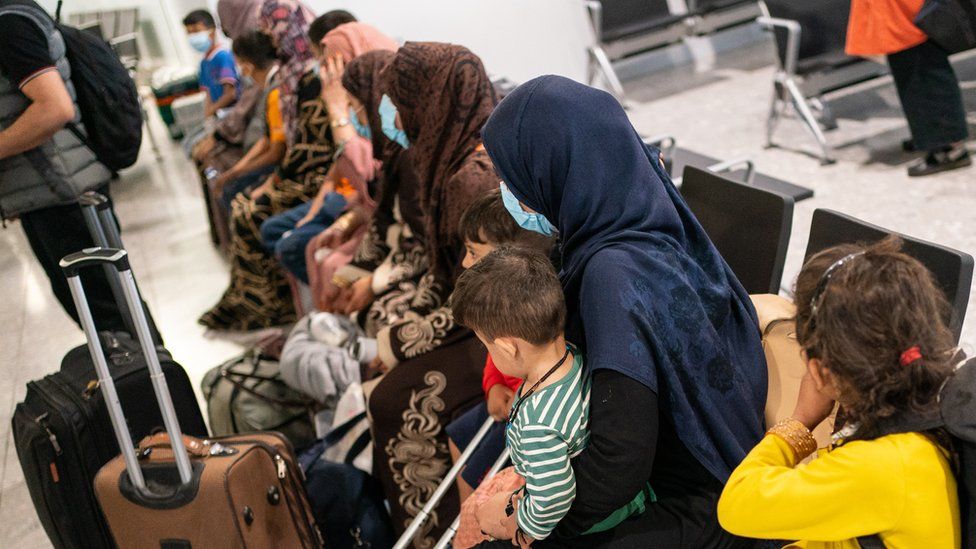ARTICLE AD BOX
 Image source, Getty Images
Image source, Getty Images
By Alex Forsyth & Brian Wheeler
BBC News
Afghan families given refuge by the UK are facing homelessness after being told by the government to move out of hotels, councils have told the BBC.
The families, many of whom worked for the British government, came to the UK after the Taliban takeover in 2021.
Thousands are still living in temporary government-funded hotel accommodation - but are now starting to be moved out.
Those that can not find permanent homes will be classed as homeless and the responsibility of local councils.
Councils say some families have already presented as homeless this week. One authority in Essex said that it had nine families now facing homelessness.
They fear more will follow, putting pressure on already squeezed local authorities, who have legal duty to find accommodation for homeless people.
The families were given three months notice in April to leave the hotels.
The Home Office said it had provided funding to councils to help with the transition and was running schemes to help more Afghan families find permanent family homes.
A spokesperson said: "Hotels are not, and were never designed to be, long-term accommodation for Afghans resettled in the UK and it is not in their best interests to be living in hotel accommodation for months or years on end.
"That is why we have announced a plan, backed by £285m of new funding, to speed up the resettlement of Afghan nationals into long-term homes.
"Extensive government support is available and we will continue to do all we can to help Afghan families as they rebuild their lives here."
Councils say the government funding is not enough and although accommodation will be found for the refugees, it may mean they have to move hundreds of miles to other hotels.
Loyalty
Stephen Robinson, the Liberal Democrat leader of Chelmsford City Council, said his housing officers had to find accommodation for nine Afghan families, totalling 60 people.
"They were offered the chance to come to the UK because of their loyalty to the British government and they have been stuck in hotels for the last year, 18 months, and now they are being moved out," he told BBC News.
The families had highly qualified people who wanted to contribute to British society, he added, and had found work and schools for their children.
"They are all becoming homeless next week and we have a statutory responsibility to put them into temporary accommodation," he said.
The council already has to deal with 430 homeless households in Chelmsford, said Mr Robinson, and there was a lack of accommodation.
"We warned the government that this would be a problem and they just covered their ears. They didn't want to think about the end game," he told the BBC.
"We have a moral duty to those who worked for the British government to look after them properly and we have, as a country, this government, has let them down."
'Distress'
Shaun Davies, a councillor and chairman of the Local Government Association, said councils shared the Home Office's determination to get Afghan families out of hotels and into permanent homes.
He added, however, that local authorities were already seeing families presenting as homeless.
"It is wrong that some families are having to leave Home Office-funded hotels only to then end up having to move into temporary accommodation.
"With record numbers of households already living in temporary accommodation and an acute shortage of housing across the country, this is adding huge pressure onto councils on the ground and disruption and distress for families, some of whom are particularly vulnerable.
"This situation is likely to worsen significantly as the Home Office stops paying for the remaining bridging hotels for Afghan families in the coming days and weeks."
He said the government should continue to pay for hotel places for those families struggling to find accommodation.
He warned that hotels should not be closed to Afghan refugees only to "switch to becoming hotels for other new arrivals".
Councils should be allowed to continue to focus on finding Afghan families homes and schools, he added.

 1 year ago
23
1 year ago
23








 English (US) ·
English (US) ·